With the weather and ongoing COVID-19 pandemic, it’s hard for many to get a healthy amount of human contact (I say as I enter my ninth month of working from home). Memoirs and personal storytelling are a great way to (re)kindle those human connections. Here are a few of my all-time favorites!
Between the World and Me
by Ta-Nehisi Coates
Written as a letter to his 15-year-old son, Between the World and Me grapples with what it means to be Black in America today. This incredibly potent read distills history, personal anecdotes and reportage to express Coates’ hopes and fears for his son’s future and to appeal to his fellow Americans in general. The prose is intimate, hashing out both the author’s personal experiences as well as the larger history of racism in America. He writes:
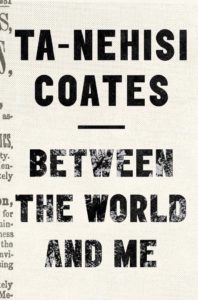
“How do I live free in this black body? It is a profound question because America understands itself as God’s handiwork, but the black body is the clearest evidence that America is the work of men.”
Coates also describes how white America’s legacy of homogenizing race has led to an outpouring of diversity within the Black community, akin to Taiye Selasi’s Afropolitan. Readers experience this alongside Coates on the Howard University green, which he refers to as The Mecca:
“Through the Mecca I saw that we were, in our own segregated body politic, cosmopolitans. The black diaspora was not just our own world but, in so many ways, the Western world itself.”
Ultimately, Coates’ informs without talking down to his readers and confronts with a clear and graceful voice.
Crazy Brave
by Joy Harjo
In this lyrical yet unflinching memoir, Joy Harjo chronicles her journey to find her voice as a Native American woman, artist and storyteller. Comprised of photos, poems, myths and music, Crazy Brave weaves together the physical and spiritual. The memoir begins before her birth, where Harjo shares memories from inside her mother’s womb. Born in Oklahoma, the final place of the Trail of Tears, Harjo lives with her mother and abusive stepfather, before moving to New Mexico to attend the Institute of American Indian Art at 16 years old.
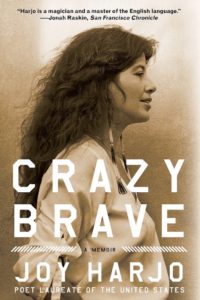
Throughout Crazy Brave, Harjo toes the line between the real and fantastical to both describe her journey as well as escape it. She often relies on poetic writing to portray more difficult moments in her life: “I could hear my abandoned dreams making a racket in my soul.” Likewise, she uses her creative spirit to move beyond herself:
“When Sun leaves at dusk, it makes a doorway. We have access to ancestors, to eternity. Breathe out. Ask for forgiveness. Let all hurts and failures go. Let them go.”
A member of the Muscogee Creek nation, Joy Harjo is the current U.S. Poet Laureate and the first Native American to hold this post. Learn more about Joy Harjo, Crazy Brave and her work here.
Unorthodox: The Scandalous Rejection of my Hasidic Roots
by Deborah Feldman
Deborah Feldman recounts her childhood growing up in the Hasidic Satmar society in Williamsburg, Brooklyn and her eventual exodus from the community. Recently adapted into a Netflix mini-series, Unorthodox depicts her reactions and interactions with her community and their expectations of her. The series is loosely based on her memoir and recounts her move from Williamsburg to Berlin, where she currently lives.
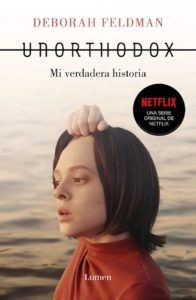
Her constant self-reflection guides readers to a greater understanding of both the Satmar community and her evolving positionality as she grows up-and-out of Williamsburg. Even though Feldman’s story is likely different from her audience’s, she challenges her readers to consider what kind of person they want to be and what dreams they want to pursue.
“As far back as I can remember, I have always wanted everything from life, everything it can possibly give me. This desire separates me from people who are willing to settle for less. I cannot even comprehend how people’s desires can be small, their ambitions narrow and limited, when the possibilities are so endless.”
Check out Feldman’s memoir for a truly humbling read and beautifully crafted story.
When Breath Becomes Air
by Paul Kalanithi
When Breath Becomes Air is an emotional, thought-provoking piece by Paul Kalanithi, a young, terminally ill neurosurgeon who grapples with the question “What makes life worth living.” Published posthumously, Paul wrote the first two sections and his wife, Lucy, provided the final section after his passing. I’ve read this book twice and cannot express how much I adore and respect this book and author.
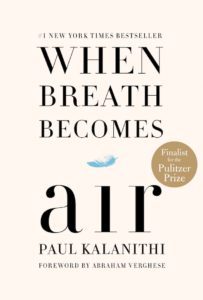
Kalanithi engages his audience on the fundamental aspects of living a full life, whatever that may mean for each reader. I found this book particularly compelling because he uses both emotive and empirical methods. Kalanithi attained a BA and MA in English literature before transitioning into medicine. The combination results in him quoting Walt Whitman, while contemplating cognitive function.
“Science may provide the most useful way to organize empirical, reproducible data, but its power to do so is predicated on its inability to grasp the most central aspects of human life: hope, fear, love, hate, beauty, envy, honor, weakness, striving, suffering, virtue.”
Fun Home
by Alison Bechdel
A tragicomic graphic novel for literature lovers, Fun Home grapples with a family’s identity by comparing familial situations to scenes found in classic plays, novels and mythology. Bechdel reflects on her father’s death, a likely suicide, and closeted homosexuality in tandem with her discovery of her own sexual identity as a lesbian.
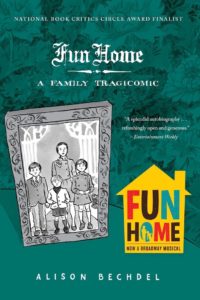
Throughout Fun Home, readers observe a growing tension between Bechdel and her father. Despite their shared sexual identity and love of literature, her father is often described as emotionally distant, in part due to his closetedness, and at times, tyrannical. Bechdel explains:
“I was Spartan to my father’s Athenian. Modern to his Victorian. Butch to his nelly. Utilitarian to his aesthete… Not only were we inverts, we were inversions of each other. While I was trying to compensate for something unmanly in him, he was attempting to express something feminine through me. It was a war of cross-purposes, and so doomed to perpetual escalation.”
The comic book layout further highlights this tension and the tragicomic undertones found in Fun Home. What’s the meaning behind the title? It refers both to the family nickname for the funeral home Bechdel’s father owned as well as to his harsh domestic rule.
